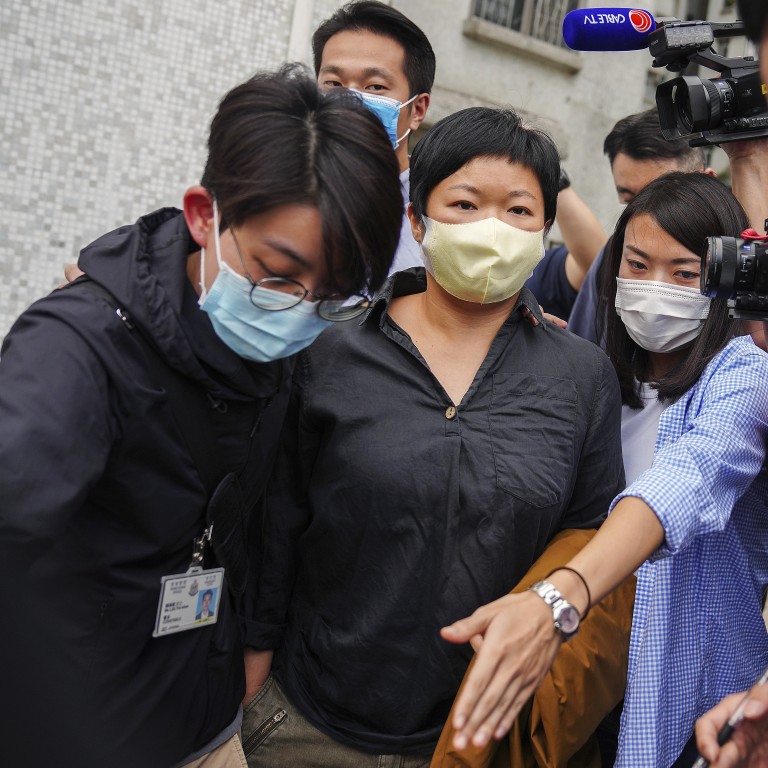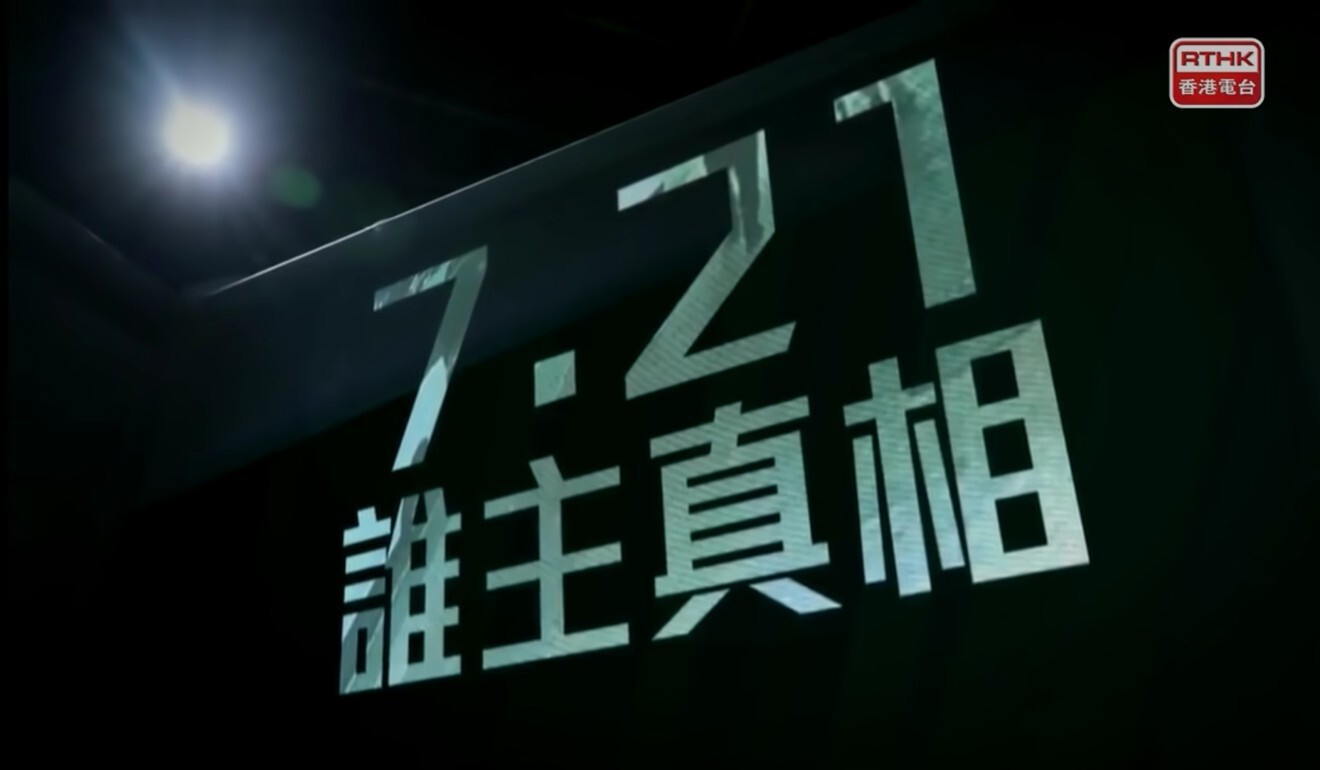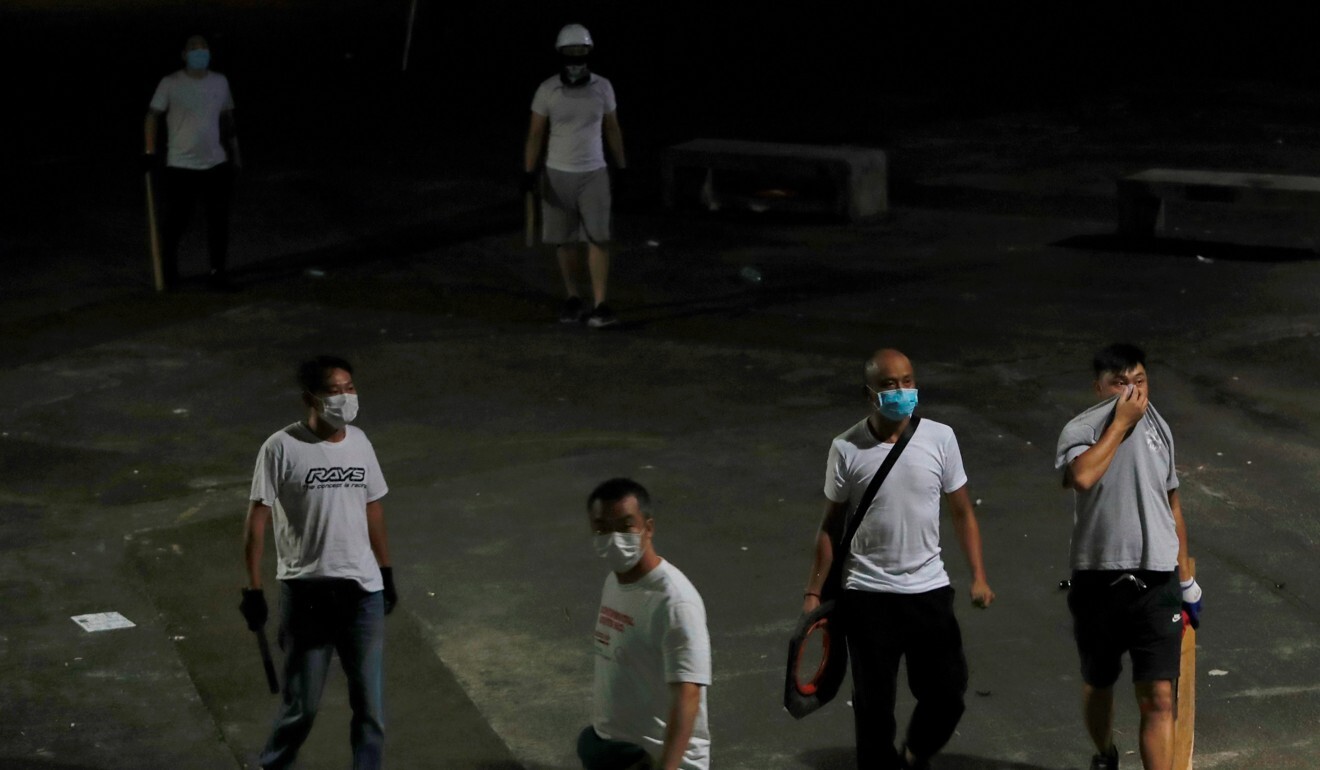
Hong Kong investigative reporting hangs in balance after arrest over database search, lawyers and media scholars fear
- New restrictions to accessing government databases leave little room for public interest searches by journalists, restricting press freedom, observers say
- One barrister suggests city’s privacy ordinance, which exempts news activities, should have overridden transport law police used to arrest RTHK contributor
The future of investigative reporting in Hong Kong could be at stake following the prosecution of a journalist that has set new boundaries for information searches serving the public interest, lawyers and media scholars warned on Wednesday.
A closer look by the Post at three different government search platforms – providing details of vehicle and company ownership, as well as marital status – found some departments have modified their declaration requirements in recent years in ways observers say could expose journalists to legal risks.
At the centre of the controversy is Tuesday’s arrest of Bao Choy Yuk-ling, a contributor to public broadcaster RTHK charged with providing false statements when searching for the personal details of car owners on a government database.

Choy, a co-producer on the episode, was accused of violating the Road Traffic Ordinance by using the information obtained for a purpose other than what she stated when applying for access.
Journalism scholars and media unions have voiced concerns about changes to the Transport Department’s online application form – believed to have been made in recent months – which require a declaration of purpose before accessing the car ownership database.
The privacy ordinance gives exemption to news. It was only the Transport Department ... that did not provide an option for media reporting. There’s scope for a judicial review
While a previous version of the form allowed applicants to type in their purpose, the updated version restricts them to ticking one of three options. “News reporting” is not among them.
Other search platforms run by the government have also tightened declaration requirements in recent years.
Since October 2019, the Immigration Department has no longer allowed anyone to check marital or birth records without the authorisation of the person concerned or permission from the government.
Similar to the vehicle ownership database, the Companies Registry system has, since 2016, required members of the public to declare their purpose before logging in by choosing from 11 boxes, none of which cover media searches.
The city database providing details of property and land transactions, meanwhile, stands in stark contrast to the trend, still requiring no declaration of purpose.
Arrest of reporter over show on Yuen Long mob attack sparks Hong Kong media fury
Francis Lee Lap-fung, director of Chinese University’s journalism school, lamented the recent tightening of access to information he believed was in the public interest, saying he feared this week’s arrest was a signal the government and police force would no longer provide journalists the flexibility they had previously enjoyed.
“These rules and laws are undermining press freedom and the common understanding that journalists will not be prosecuted when doing searches. Media organisations should seek clarification,” he said, adding they should also weigh the risks involved in future searches.
“At this moment, I would suggest media organisations look into the terms of different search platforms to avoid crossing these new boundaries set up by the force,” he said.
Pro-establishment lawmaker Micheal Tien Puk-sun also said the incident had created a negative public perception and urged the government to explain why the Transport Department would discreetly amend the form.

He also called for the inclusion of an option for media reporting in the declaration form to uphold the city’s press freedom guarantees.
On Wednesday, Chief Superintendent Kwok Ka-chuen, of the police force’s public relations branch, attempted to allay public concerns by insisting the arrest was “not targeting any industry, media or programme”.
“Some of the public are worried about doxxing in recent months, and seeking more protection of privacy, thus, those declarations considered the needs of protecting personal data,” he said, adding the force had sought legal advice before carrying out the arrest.
Secretary for Security John Lee Ka-chiu also defended the arrest, saying the force had not targeted a journalist but simply acted upon a complaint according to established procedures.
The arrest of Choy has also sparked questions about the role of the Office of the Privacy Commissioner for Personal Data, after a police source revealed the case was referred from the watchdog agency.
RTHK ‘extending probation’ of Hong Kong journalist known for hard-nosed questions
While news activities were exempted from the Personal Data (Privacy) Ordinance, the transport law allegedly breached by Choy provides no similar protection for journalists.
Duncan Ho Dik-hong, a barrister and member of the Progressive Lawyers Group argued the broader exemption should have overridden the transport law, officially known as the road traffic (registration and licensing of vehicles) regulations.
“The Basic Law protects freedom of the press, and the personal data ordinance currently gives exemption to news reports, which should be applicable in these searches,” he said.
Under existing regulations, Ho added, the Commissioner of Transport was not granted the power to ask the purpose of searches, and was obliged to disclose vehicle information as long as the applicant had paid.
Two years’ jail for first person found guilty of doxxing police, families
“The privacy ordinance gives exemption to news reports. It was only the Transport Department’s form that did not provide an option for media reporting. There’s scope for a judicial review to challenge the department’s methods,” he said.
The privacy commissioner’s office did not respond to a request for comment before publication.
Lee, of Chinese University, meanwhile, said the privacy watchdog should formally address whether they had referred the case to police, while the force should also explain why the focus of their investigation had been false statements rather than privacy matters.
Hong Kong Journalists Association chairman Chris Yeung Kin-hing said the arrest would have a hugely negative impact on public interest journalism by restricting basic searches necessary for investigative reporting. The department’s online forms also failed to consider the needs of journalists, he added.
The slow police response to the Yuen Long attack, in which a group of white-clad men indiscriminately attacked passengers and protesters returning from a mass rally, sparked a public outcry last year, with officers accused of colluding with the assailants, an allegation police have repeatedly denied.


